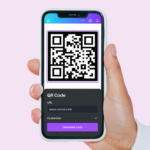Introduction to Market Research Survey
Market research survey are essential tools for businesses looking to understand their audience and make informed decisions. In a world filled with options, knowing what your customers want can set you apart from the competition. Whether you’re launching a new product or refining an existing service, the insights gained from these surveys can be invaluable.
But what exactly is a market research survey? Simply put, it’s a systematic method of gathering information about consumers’ preferences, behaviors, and opinions. This data provides vital clues that help shape marketing strategies and drive business growth.
As we dive into the various types of market research surveys available today, we’ll explore how qualitative and quantitative methods serve different purposes. From in-depth interviews to online questionnaires, each approach offers unique benefits tailored to specific research goals. Understanding these differences will empower you to choose the most effective survey method for your needs. Let’s get started!
Qualitative vs. Quantitative Surveys
Qualitative and quantitative surveys serve different purposes in market research. Qualitative surveys dive deep into the thoughts, feelings, and motivations of participants. They provide rich insights but typically involve smaller sample sizes.
On the other hand, quantitative surveys focus on numbers and statistics. These surveys use larger samples to gather measurable data, ideal for identifying trends or validating hypotheses.
Qualitative methods often employ open-ended questions allowing respondents to express themselves more freely. This can lead to unexpected discoveries that shape strategies.
Conversely, quantitative approaches rely heavily on structured questionnaires with closed-ended options. This method enables researchers to analyze data efficiently using statistical tools.
Each approach has its strengths and limitations, making them suitable for different types of research goals. Understanding these differences is essential when designing a market research survey tailored to specific needs.
Types of Qualitative Surveys: In-Depth Interviews and Focus Groups
Qualitative surveys provide rich insights into consumer behavior. Two primary methods stand out: in-depth interviews and focus groups.
In-depth interviews allow researchers to dive deep into individual perspectives. They foster a one-on-one connection, encouraging participants to share personal experiences and feelings about products or services. This method is perfect for uncovering nuanced opinions that might be overlooked in broader studies.
Focus groups bring together diverse participants for dynamic discussions. These group interactions stimulate conversation, revealing collective attitudes towards a brand or concept. The synergy among participants can spark ideas that individuals might not express alone.
Both methods prioritize understanding over numbers, providing context and depth essential for effective market analysis. Each offers unique advantages depending on the goals of your research project, making them valuable tools in the qualitative landscape.
Types of Quantitative Surveys: Online Surveys and Phone Surveys
Quantitative surveys are essential tools for gathering measurable data. Two popular formats in this category are online surveys and phone surveys.
Online surveys have gained immense popularity due to their convenience. Participants can complete them anytime, anywhere, using various devices. This flexibility often leads to higher response rates. Additionally, online platforms offer robust analytics that help researchers quickly interpret results.
On the other hand, phone surveys provide a personal touch. Interviewers can probe deeper into responses and clarify questions if needed. While they may require more time and resources, the direct interaction fosters trust and engagement with respondents.
Each method has its unique advantages. The choice ultimately depends on your target audience and research objectives. Balancing these considerations ensures effective data collection tailored to your specific needs.
Choosing the Right Survey Method for Your Research
Choosing the right survey method is crucial for gathering meaningful insights. Each approach offers unique advantages that can significantly impact your results.
Consider your research goals first. Are you seeking detailed feedback or numerical data? Qualitative methods, like interviews, provide depth and context. They capture emotions and motivations behind consumer behaviors.
On the other hand, quantitative surveys are ideal for large-scale analysis. Online surveys can quickly reach a broad audience and offer statistically significant data.
Also factor in budget constraints and time availability. Some methods require more resources than others.
Think about your target demographic. Certain groups may respond better to specific formats—like mobile-friendly surveys versus traditional phone calls.
By aligning your objectives with the appropriate survey style, you’ll maximize both efficiency and accuracy in your market research efforts.
Data Collection and Analysis Methods for Market Research Surveys
Data collection is a crucial step in any market research survey. Choosing the right method can make all the difference in obtaining reliable insights.
There are various techniques for gathering data, including online tools and traditional methods like face-to-face interviews. Online surveys have gained popularity due to their efficiency and reach. They allow researchers to collect responses quickly from a diverse audience.
Once data is collected, analysis comes next. Statistical software often plays a key role here, helping to identify trends and patterns within the responses. Qualitative data may require thematic analysis to extract meaningful themes from open-ended questions.
Visual representation of data through charts or graphs can enhance understanding as well. This helps stakeholders grasp complex information easily while making informed decisions based on research findings more effectively.
Best Practices for Conducting Effective Market Research Surveys
When conducting a market research survey, clarity is key. Craft your questions in a straightforward manner. Avoid jargon that might confuse respondents.
Timing matters too. Choose an optimal time for distribution to ensure higher response rates. Midweek mornings often yield the best engagement.
Engage with your audience by personalizing invitations or reminders. This builds rapport and encourages participation.
Ensure anonymity when possible; it can lead to more honest answers. Respondents feel safer sharing their thoughts without fear of judgment.
Pilot test your survey before full deployment. A small test group can help you identify unclear questions or technical issues. Making adjustments based on this feedback enhances overall quality and reliability of results.
Conclusion
Understanding the various types of market research surveys can greatly enhance your business strategy. Each method offers unique insights that cater to different needs.
Qualitative and quantitative approaches serve distinct purposes, allowing you to gather rich narratives or hard data. Choosing the right survey type ensures you capture the information most relevant to your goals.
Effective execution requires attention to detail in both design and analysis. Properly crafted questions lead to more reliable responses.
In an ever-evolving marketplace, staying informed about consumer preferences is crucial for success. Embrace these techniques as part of a broader strategy for growth and innovation.
FAQs
What is a market research survey?
A market research survey is a tool used to gather data about consumers, competitors, and the overall market landscape. It helps businesses understand preferences, behaviors, and trends.
Why are qualitative surveys important?
Qualitative surveys provide deep insights into consumer motivations and feelings. They help in understanding the “why” behind customer choices.
How do quantitative surveys differ from qualitative ones?
Quantitative surveys focus on numerical data that can be statistically analyzed. They measure attitudes or opinions across larger populations, while qualitative surveys explore deeper insights from smaller groups.
Which type of survey should I use for my business needs?
The choice depends on your goals. If you want detailed narratives and feedback, opt for qualitative methods like interviews. For broader statistical analysis, choose quantitative methods such as online or phone surveys.
What tools can I use for conducting online surveys?
There are many platforms available like SurveyMonkey, Google Forms, and Typeform that make it easy to create and distribute online surveys efficiently.
How can I analyze the data collected from my market research survey?
Data analysis can involve both qualitative coding techniques for open-ended responses and statistical software for numerical data interpretation. Look at patterns in responses to draw meaningful conclusions.
When should I conduct a market research survey?
Timing is crucial; consider conducting them before launching new products or services or when entering new markets to inform your strategy effectively.
Is anonymity important in market research surveys?
Yes! Anonymity encourages honesty among respondents which leads to more accurate results that reflect true opinions rather than socially desirable answers.

















